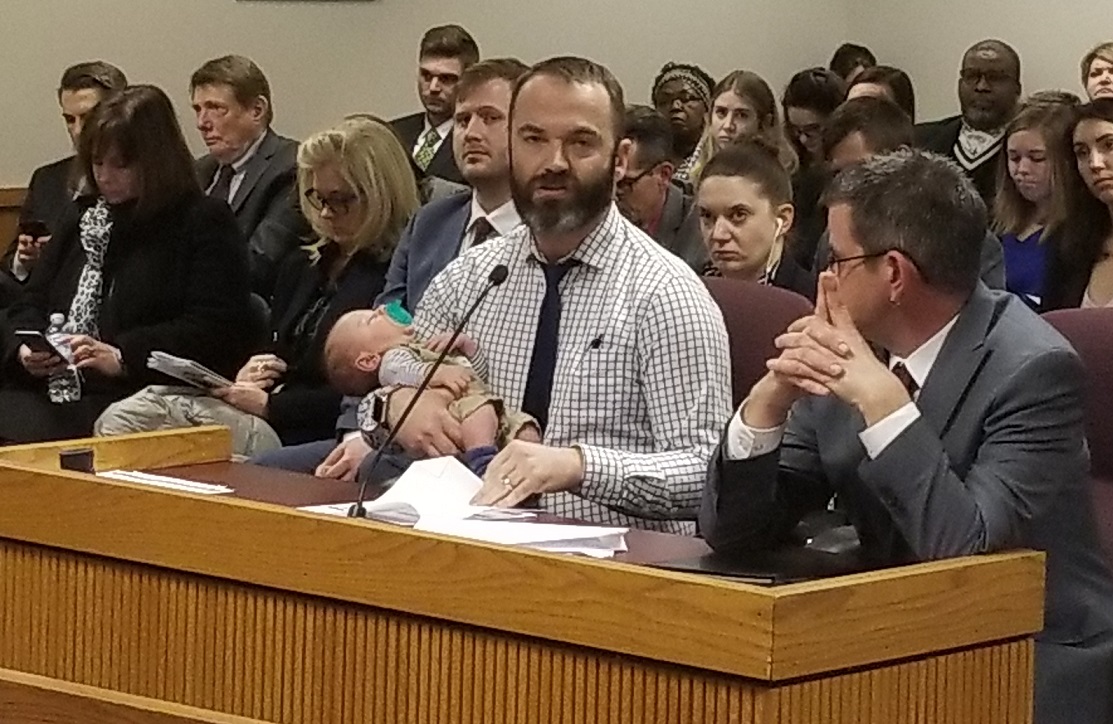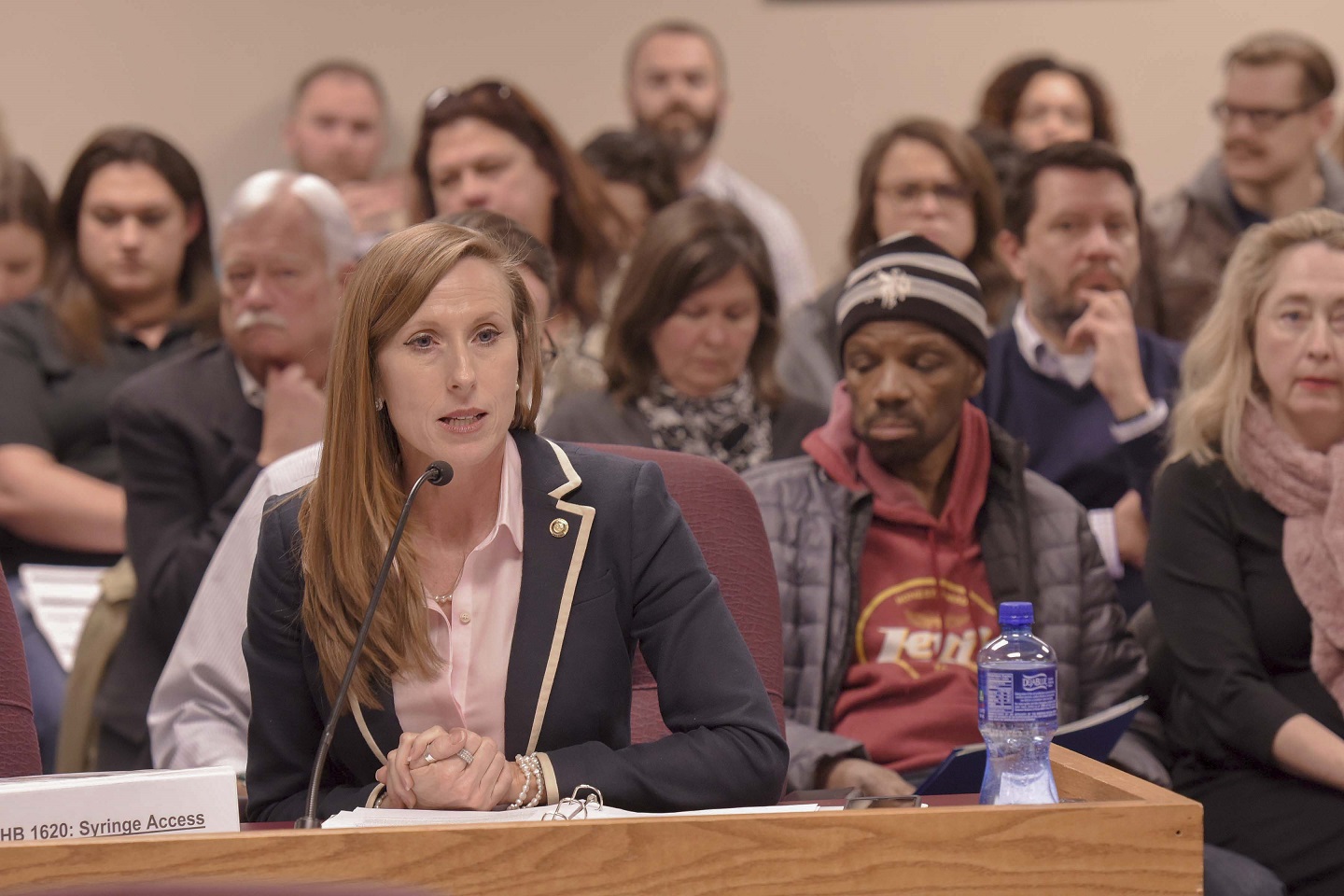People who’ve benefited from needle exchange programs that are operating outside Missouri law are asking the state House to make them legal so they can be expanded.

Needle exchanges in the Kansas City and St. Louis regions allow abusers of intravenous drugs to get clean needles. Similar exchanges in other states have been shown to be successful in combating the spread of diseases like HIV and Hepatitis C, while getting more drug abusers into treatment programs.
In Missouri, however, those exchanges are in violation of the state’s drug paraphernalia laws. The ones in Kansas City and St. Louis are essentially operating through unofficial “handshake” agreements with local law enforcement, who allow them to keep running. House Bill 168 would exempt them from the state’s drug paraphernalia laws.
The bill is sponsored by Sikeston Republican Holly Rehder, who has strongly promoted and sponsored this and other bills aimed at fighting opioid abuse throughout her seven years in the House.
Chad Sabora runs one of those programs. He is also a former prosecutor who became a heroin user, and has been in recovery for almost eight years.
He said needle exchanges are successful because they promote human connections with abusers.
“At our current syringe access program we are putting about 100 people a month into treatment. That’s 100 people off the streets, off the needle, finally getting help, and they did that because they walked in one day to get a free, 9-cent needle. It’s not about that needle,” Sabora told the House Special Committee on Urban Issues. “We need to gain trust, we need to get somebody in front of us, and also we have tons of federal money right now for the opioid epidemic.
“This is how this works. This is how we’re going to reduce drug use in St. Louis and Missouri,” said Sabora.

Aaron Laxton with the Missouri Network for Opiate Reform and Recovery, like Sabora, has testified in support of needle exchange legislation several times in past years. He told the committee that in past years he’s talked about loved ones he’s lost to opioid abuse, but in this hearing he offered an example of two lives saved by an exchange program.
He presented his one-and-a-half-month old adopted son Grayson, who was exposed to fentanyl, cocaine, and methadone before birth. He said the programs like those that HB 168 would support help people like Grayson’s mother get into treatment.
“We were able to keep her in care … she had the baby, and we were able to move in and do the adoption,” said Laxton. “And, in this system, we saved money from the criminal justice system, we saved money from the child welfare system; you can see that trickle-down effect that we’re having.”
Laxton told lawmakers that technically what he does is illegal, and he urged lawmakers to change that so that more programs like his can be started throughout the state.
“I can be pulled over by police, I can be arrested by police, even as a social worker, even doing this work in my own community. Now luckily, we operate with agreements from the city, but we shouldn’t have to operate on handshake agreements,” said Laxton. “We could probably have ten programs up and running within three months if this legislation moves forward.”
Rehder said opponents often raise the question of whether needle exchanges enable drug abusers.
“These are individuals who are already using syringes for their addiction. No one starts using a needle because they can get one free,” said Rehder. “Needles can be purchased now. They begin using them because it’s a progression in their addiction.”
Rehder said the CDC has identified 13 counties in Missouri that are primed for an outbreak of Hepatitis C. She said passing her bill would help keep those outbreaks from occurring, and could save the state tens of millions of dollars.
Last year a needle exchange program proposal passed out of the House with 135 votes in favor, but it stalled in the Senate. Rehder said she has assurances from senators that they will help propel her bill to the floor in that chamber if it clears the House this year.
The committee has not voted on HB 168.
Earlier stories:
Missouri House asked again to revamp HIV infection laws, endorse needle exchange programs
House asked to back needle exchanges to stem potential disease outbreaks
Missouri House votes to support needle exchange programs to fight IV drug abuse, disease